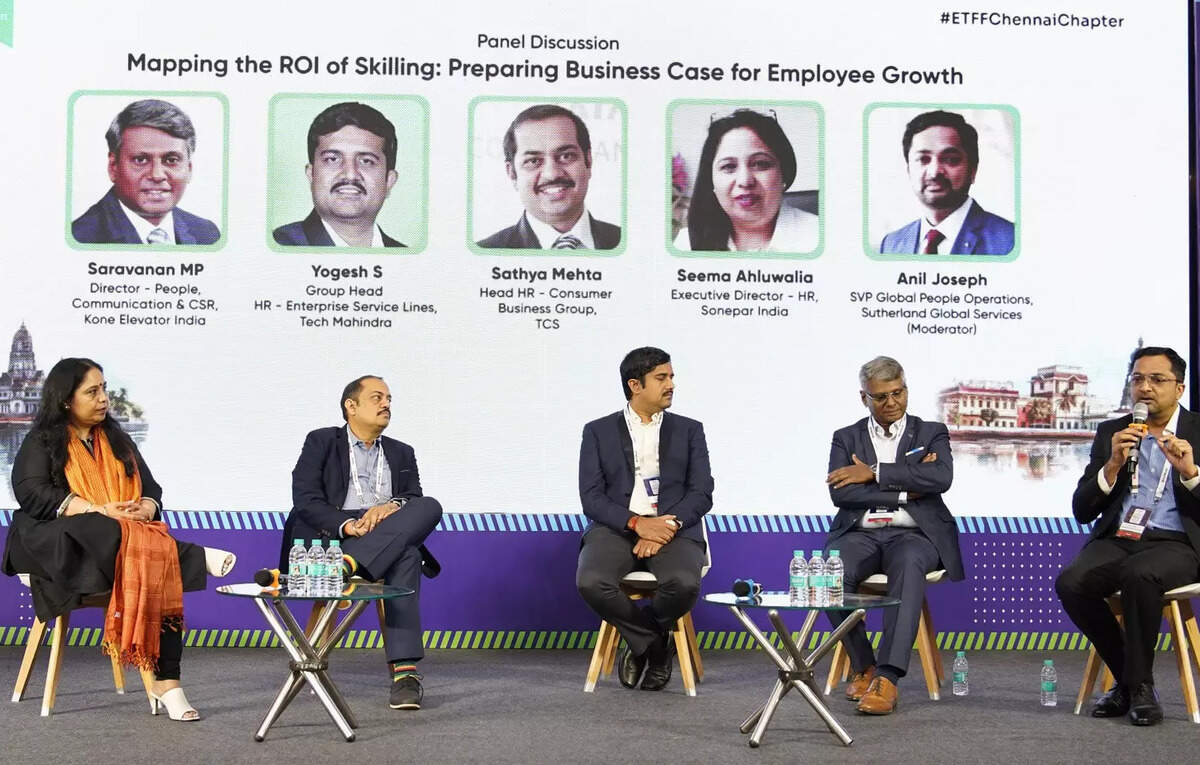Talent Development Takes Center Stage as Companies Struggle to Unlock Return on Investment (ROI) from Skilling Initiatives

In a significant shift toward prioritizing the future-readiness of their workforce, companies across various industries have come together to discuss the critical importance of measuring the return on investment (ROI) of skill development initiatives.
At the ETHRWorld Future Forward Chennai Chapter, experts emphasized that while continuous skilling and upskilling are essential for organizations to remain competitive in a rapidly accelerating world, they must be justified with measurable metrics linkable to tangible business results. Without these clear outcomes, justifying budgets becomes increasingly challenging, and skilling programs risk falling short of their potential.
Ritesh Joshi, CEO of TCS India, noted that tracking the effectiveness of skilling initiatives is critical, not only from an employee's perspective but also at a business or account viewpoint. To monitor progress, companies are utilizing digital currency—skill scores—tracking how much skill development individuals achieve, making it appealing directly to young talent.
However, there remains a gap between aspiration and application in many organizations. For instance, Tech Mahindra has adopted both vertical and horizontal skilling strategies, moving employees from front-end development to full-stack expertise or transitioning them to new technologies like .NET.
"Bridge the gap by providing training that addresses real-world scenarios," said Anjali Sahasranam, Vice President, HR at TechMahindra. The company believes that with continuous learning opportunities and exposure to practical projects, employees can acquire the necessary skills to tackle modern challenges in the digital landscape.
Meanwhile, Sonepar India takes a different approach to gauge ROI by focusing on overlooked skilling gaps within industrial workplaces, particularly life skills and interpersonal communication.
"By investing in essential life skills like conflict resolution, communication, hiring, and managerial behavior, we see a significant return on investment in enhancing our employees' ability to perform in both technical and non-technical contexts," noted Seema Ahluwalia, Executive Director - HR at Sonepar India.
Kone Elevator India prioritizes workplace safety as its core operational pillar, with metrics such as the Industrial Injury Frequency Rate (IIFR) measuring the number of moderate or serious injuries per million working hours. The organization emphasizes that every employee undergoes and completes safety certification before being deployed to any role, reinforcing a culture where safety is not just a compliance requirement but an everyday way of working.
Finally, Sutherland has taken the stance that digital transformation is about cultivating technological awareness across all levels of the workforce, rather than acquiring deep technical expertise. Through its learning management system housing over 50,000 courses, the company encourages continuous learning and applies technology to real-world scenarios to improve both customer experiences and employee effectiveness.
In an era where upskilling has become a crucial component of organizational success, companies are now realizing the importance of measuring ROI from their skill development initiatives to invest wisely in programs that yield tangible benefits.
